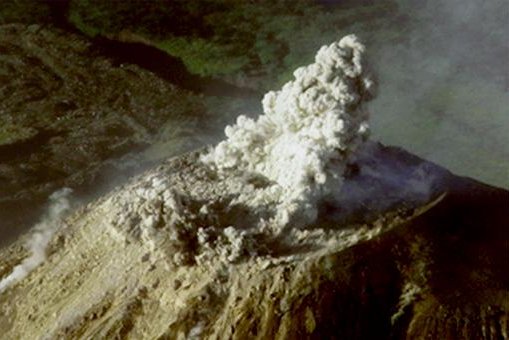Study: Frictional heat dehydrates magma

MUNICH, Germany, Dec. 28 (UPI) -- New research suggests the ceaseless activity of Guatemala's Santiaguito volcano is fueled by friction.
As magma is pushed up through cracks in the lava dome, friction is created between the viscous magma and surrounding solid rock. This friction can raise temperatures quickly enough to melt rock.
Researchers deduced as much by analyzing the composition of ash ejected by Santiaguito eruptions. The ash was surprisingly heterogeneous and marked by vesicular texture -- small, enclosed cavities.
"We have observed similar inhomogeneities in laboratory experiments in which magma was rapidly heated by means of friction," volcanologist Donald Dingwell, a researcher at Ludwig Maximilian University of Munich, said in a press release.
The new findings, published in the journal Nature, contradict the idea that local pressure dictates outgassing in magma.
Previously, researchers thought foaming magma was caused by the release of water vapor -- or outgassing -- as magma rises, and as pressure and gas solubility drops.
"But the solubility of water vapor also depends on the local temperature -- the hotter things get, the less water can be kept in solution," explained Dingwell.
The new data suggests frictional heat is more important in dictating magma foam.
While foaming magma is more buoyant and less stable, it's not actually more prone to eruptions. Foaming magma is more easily separated into fragments, allowing Santiaguito to more efficiently relieve systematic stress without blowing.
"This is presumably the reason why eruptions at Santiaguito have not produced any large-scale explosions recently," said Dingwell.
"The magma rises very rapidly through the network of fissures, producing so much frictional heat that it foams," he concluded. "Foaming in turn relieves the tensions and stresses within the system so effectively that the volcano remains in an active but stable state overall."
http://www.upi.com/Science_News/2015/12/28/Study-Frictional-heat-dehydrates-magma/5481451318081/--
__._,_.___

No comments:
Post a Comment